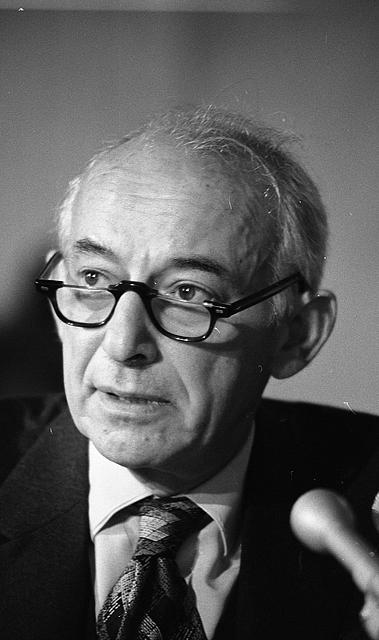Just as Johann Gutenberg’s invention of moveable type in the 15th century influenced freedom of the press, modern technologies continue to pose challenges to First Amendment freedoms — and sometimes lead to government actions.
Johnson appointed a task force to study satellite communication
Responding to the burgeoning technologies of satellite communication and cable television, President Lyndon Johnson, in an August 14, 1967, message to Congress, stated his intention to appoint “a task force of distinguished government officials to make a comprehensive study of communications policy.” In 1968, the President’s Task Force on Communications Policy brought together more than 30 academic consultants and representatives of 15 federal departments and agencies.
Task force recommended a new federal agency to oversee the new technologies
The panel’s so-called Rostow Report, named for the task force’s chair, Undersecretary of State Eugene V. Rostow, was published December 7, 1968. It recommended the creation of a federal agency to provide the executive branch with comprehensive oversight of these emerging technologies; more mundane day-to-day matters would be left to the Federal Communications Commission.
Report suggested ways to use cable to quell violence and to make it cheaper
In conjunction with Johnson’s Great Society vision for government intervention in domestic affairs, the report suggested that cable television in particular could be a means to help quell urban violence. The panel hinted at using cable to allow minorities greater opportunities to make their issues more widely known and to help them feel included.
One of the task force members’ major concerns was that federal policy be created to enable cable to be made available at the lowest possible cost without hampering the industry’s growth. Presciently, the report took note of possible problems stemming from “multiple nationwide ownership of cable systems as well as cable ownership by television networks, movie producers and distributors, local television stations, and publishers of national magazines.”
Johnson made the Office of Telecommunications Policy
Although Johnson’s March 1968 announcement that he would not seek re-election slowed the Rostow Report’s momentum as an instrument of policy, the report did produce one addition to the government infrastructure. In 1970, President Richard M. Nixon implemented one of the report’s recommendations, creating the White House Office of Telecommunications Policy by executive order. In 1978, the responsibilities of this office were transferred to a bureau of the Department of Commerce known as the National Telecommunications and Information Administration (NTIA), which continues to advise the president on telecommunications issues.
This article was originally published in 2009. Gina Logue is a 20 year radio journalism veteran who has covered events ranging from presidential elections to the 1996 Summer Olympics. Since 2001, she has worked in the Office of News and Media Relations at MTSU and has won over 20 awards for her work there.

